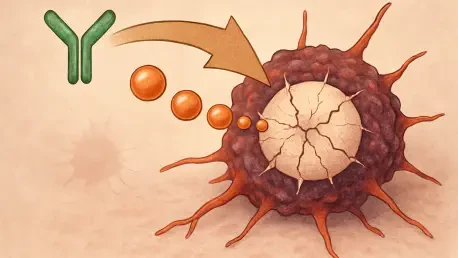
An extensive analysis of a recent international study highlights a significant advancement in treating early-stage, hormone receptor (HR)-positive, HER2-negative breast cancer, which is the most common subtype affecting approximately 70% of all patients. The landmark lidERA clinical trial

In the persistent and complex war against cancer, one of the greatest hurdles has always been the enemy's cunning ability to evade destruction, but a newly unveiled biological process, termed triaptosis, offers a groundbreaking strategy to circumvent this resistance by inducing a novel form of

The biopharmaceutical sector is at a critical inflection point where groundbreaking scientific potential is met with unprecedented economic and regulatory pressures, reshaping the very definition of medical innovation. A convergence of advanced technologies, massive capital investments, and

The human immune system operates as a phenomenally powerful and precise biological defense force, armed with an arsenal of cells and molecules capable of seeking out and annihilating a vast array of pathogens. Yet, this incredible power raises a profound and once-unanswered question: what prevents

For thousands of individuals living with the chronic autoimmune disorder immune thrombocytopenia, the daily burden of continuous medication to manage severe bleeding risks has long been an unavoidable reality. This relentless treatment cycle, often lasting a lifetime, has defined the experience of

The American healthcare system presents a deeply troubling paradox where having health insurance offers no guarantee of financial security, a reality starkly illustrated by the story of Sarah Monroe. A 43-year-old from the Cleveland area, Monroe and her family enjoyed a comfortable, middle-class